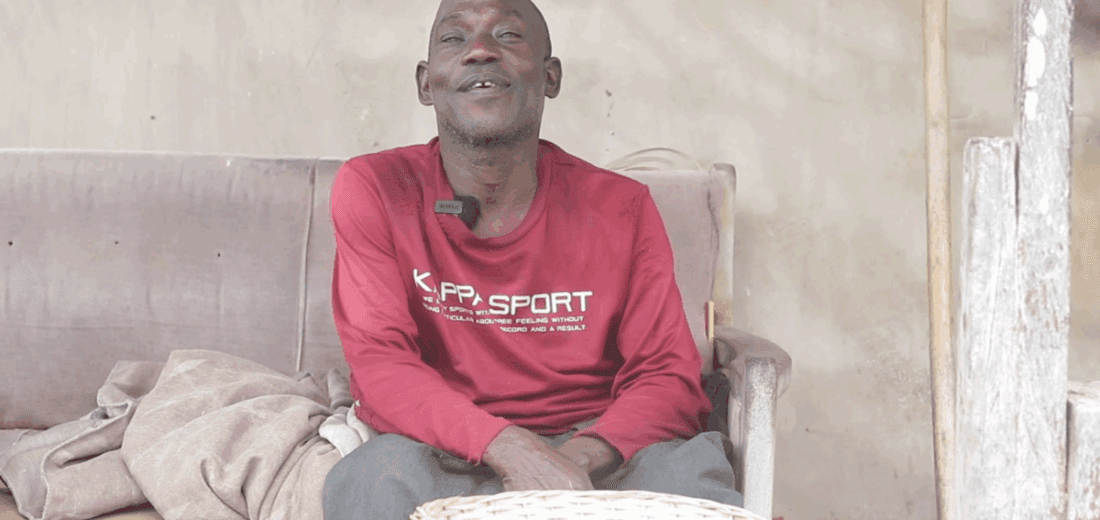
Weaving Against the Odds
“Artistry is the flickering hope of sustenance that keeps my existence afloat.”
At sixty, Kwame Amoateng continues to rely on his craft for survival. His journey began at the age of two, when a physical impairment altered the course of his life and cut off opportunities many take for granted. For Kwame, the condition was not the end of possibility but the beginning of adaptation.
Through decades of practice, he has mastered the art of shaping rattan into baskets, cane chairs, and flower pots, crafts that carry both elegance and utility. His workshop provides income, a foundation on which he raised a family, sent his children through school, and asserted his independence in a society where disability often means exclusion.
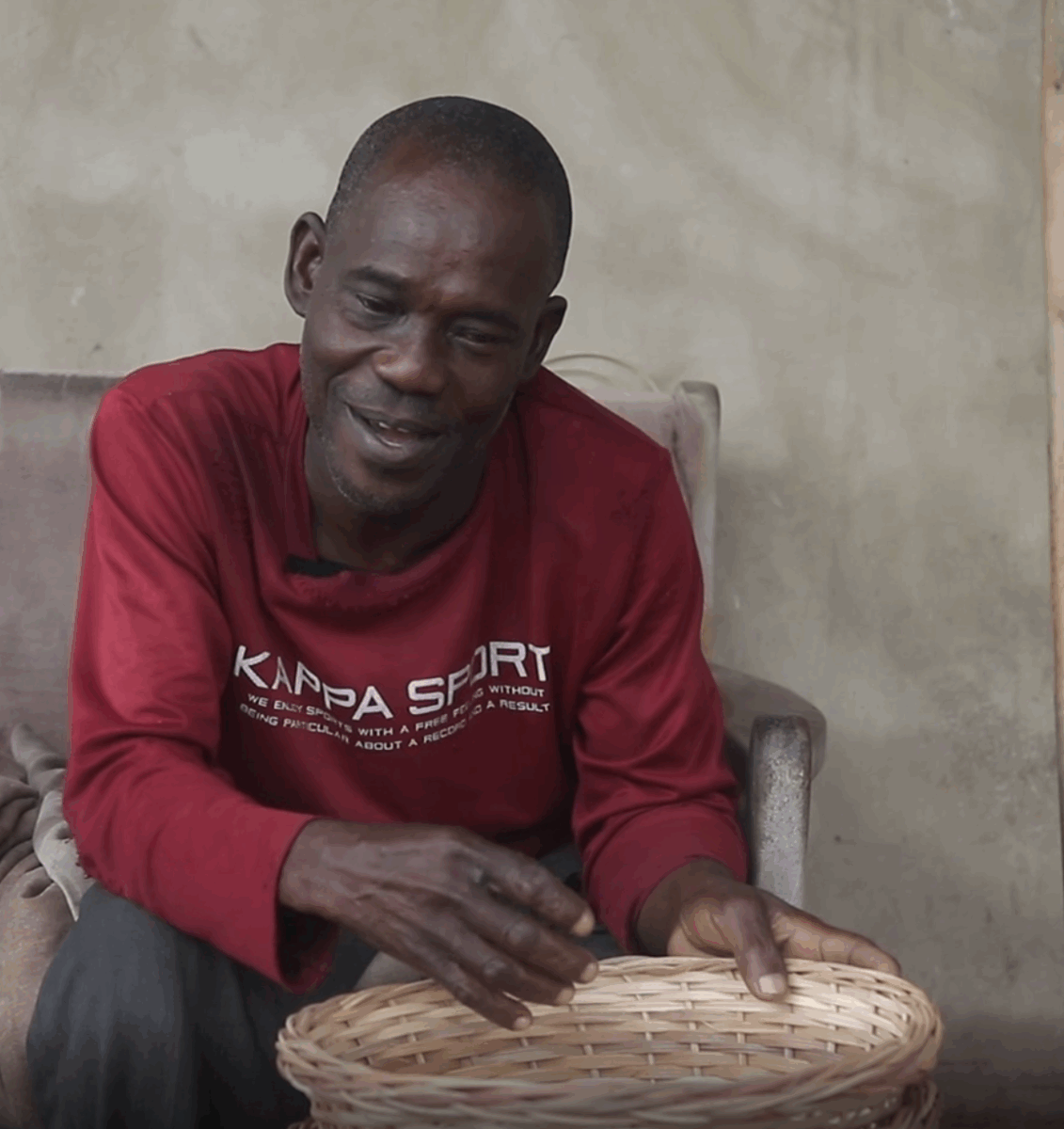
Kwame Amoateng
Foundations of Strength
Kwame grew up in Akyem Sekyere in the Eastern region of Ghana specifically in the Atiwa District. Growing up, Kwame Amoateng faced numerous challenges that could have easily discouraged him from living his life to the fullest. He was just a toddler when life dealt him its first hard blow.
“I was told at age two, my mom was going to the stream to get water and I wanted to follow her. She refused to take me along so I cried and threw myself on the floor. After several minutes of crying, my parents tried comforting me but realized I could not stand on my feet any longer. The situation looked weird and mysterious, people even thought it was spiritual. We visited many clinics including native doctors for treatment but it all proved futile. Since then, I have not been able to walk again. I had to start learning how to use a walking stick when I started schooling at five.” he recalled.
Paralyzed at such a young age, Kwame grew up differently from his peers. While other children ran and played, he spent his afternoons quietly observing the world around him. From his corner in the family’s backyard, he watched elderly men weaving baskets in front of their shops and local artisans bending cane into the elegant curves of chairs. Those hours of observation slowly became an informal apprenticeship.
“Basketry is the primary source of living for the people of Akyem Sekyere. I would sit by myself, replaying in my mind the weaving patterns I had seen. When I finally had the chance to try, I got it right the very first time. That was when I discovered my love for weaving. My parents were proud that I could weave despite my condition. After Form Four, I could not continue with school because of my situation, so I decided to focus on basket making,” Kwame said.
What had begun as idle curiosity slowly evolved into his strength. Weaving gave him focus and a sense of escape from his reality.
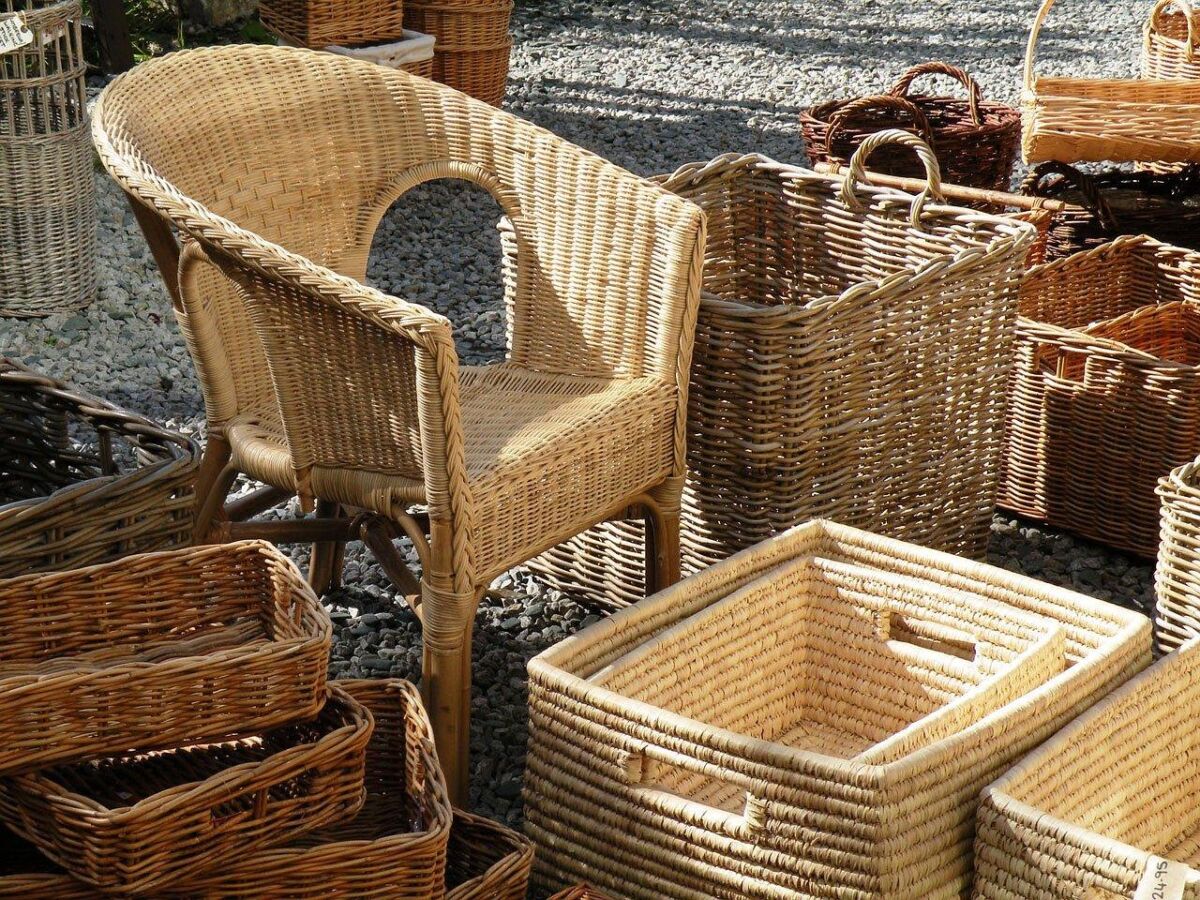
The Weight of Adversity
After years in the village, Kwame decided to move to the city in search of better opportunities. But the city, with its fast pace and competitive demands, was not easy for someone living with physical impairment.
“Despite actively searching for work, I was repeatedly turned away from workshops, market shops, and artisan cooperatives. Some business owners assumed I wouldn’t be able to meet production demands simply because of my physical impairment. They rarely gave me a chance to prove otherwise.” He disclosed.
The reality was disheartening, in group settings or public gatherings, Kwame felt invisible. He was excluded from conversations, decisions, or community programs due to unconscious bias. This lack of social inclusion reinforced feelings of alienation and made it harder to build networks that could support his craft.
“There were times where people deserted me. Even my parents at a point stopped me from furthering my education because of the isolation I was getting due to my condition. But I had to fight for myself even when the world had given up on me” he said.
Determined to survive in the city, Kwame decided to set up a small makeshift structure where he began weaving baskets and chairs. Without reliable transportation, sourcing materials was a constant struggle. He often depended on the kindness of strangers or acquaintances to help carry supplies from the market to his workshop. Today, almost 40 years later, he is a respected artisan in his community. He weaves thousands of beautiful cane chairs, sturdy baskets, and intricate decorative pieces, all from his workshop by the roadside.
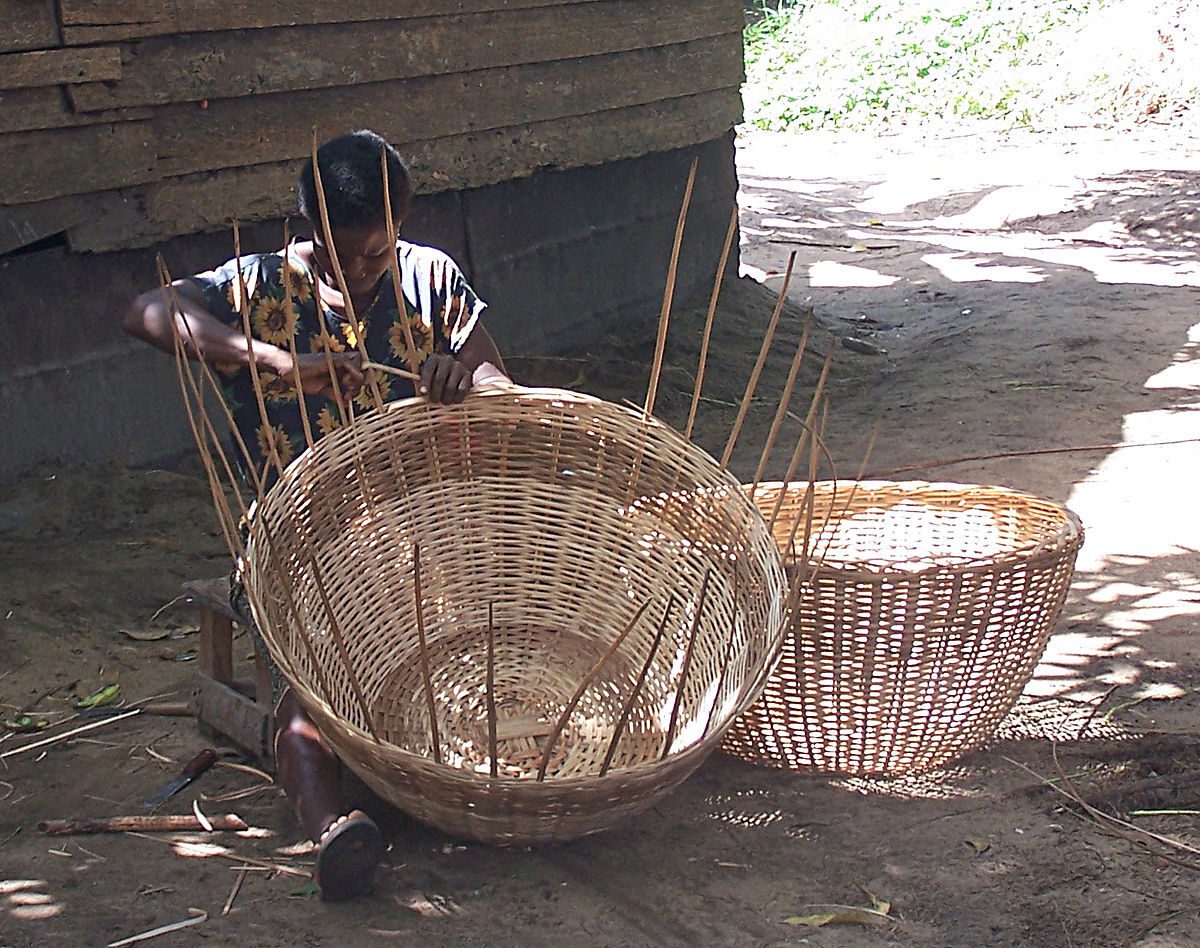
Carrying the Weight of Responsibility
For Kwame Amoateng, weaving may have provided daily sustenance, but his greatest source of fulfillment has been his role as a father. More than thirty years ago, he married a woman who chose to see his resilience rather than his impairment. Their partnership has stood the test of time, anchored in love and mutual respect. Together they raised three children, educating them through the earnings of his craft.
His commitment to his children was born from his own struggles. “I grew up with many limitations, and I didn’t want my children to go through the same. Even if I had to sit at the workshop all night weaving, I was determined they would remain in school.” Kwame reflected.
One of his children, now thirty, is thriving in his own right, a feat that brings Kwame immense pride. For him, this success is proof that responsibility and persistence can break cycles of limitation.
“When I see my children standing on their own feet, I know the sacrifices were worth it,” he said.
Fatherhood, to Kwame, transcends providing financial support. It is about instilling values, guiding choices, and ensuring the next generation grows with a sense of direction. He admonishes fathers never to shirk responsibility, and warns that when fathers neglect this role, they risk raising children who grow without direction, becoming irresponsible adults and burdens to society.
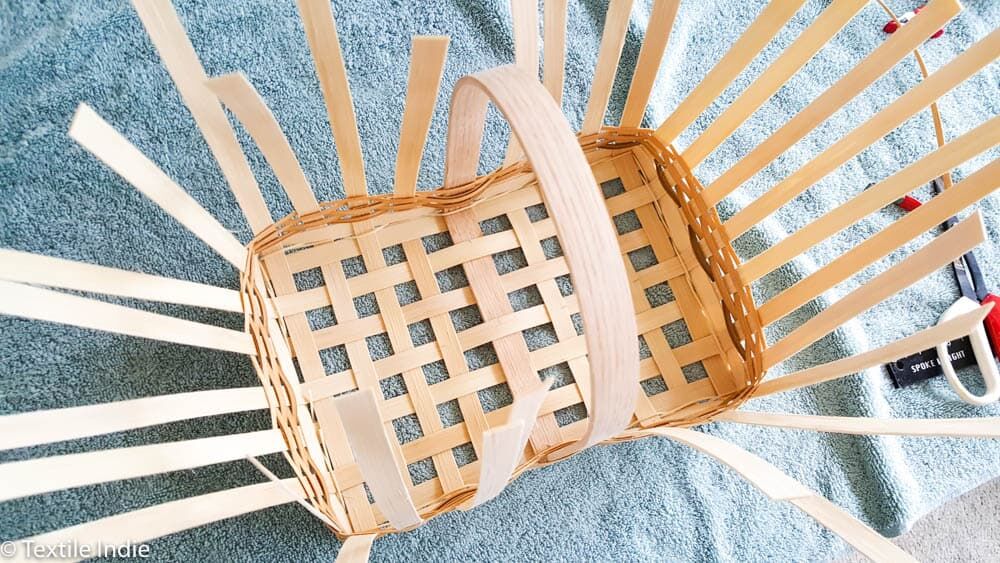
CONCLUSION
Kwame Amoateng reminds us that disability is not inability. His resilience pushes us to look beyond physical limitations and recognize the strength within every individual. Though the odds have often been stacked against him, he remains steadfast and unbroken. His experience is a call to action: with the right support systems, people living with disabilities can thrive, contribute meaningfully to society, and inspire lasting change.
Editor: Elizabeth Nana Adjoa Bonney

Leave a Reply